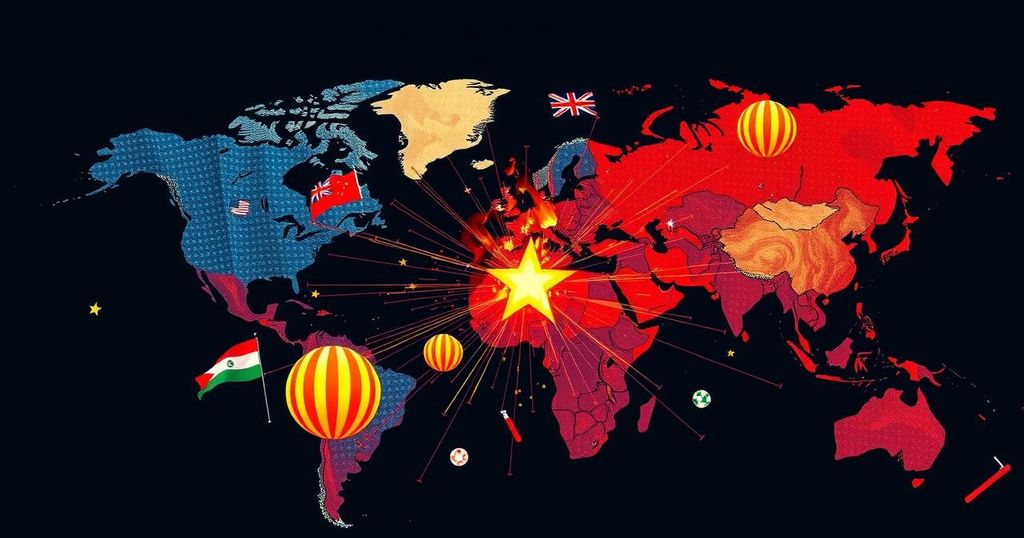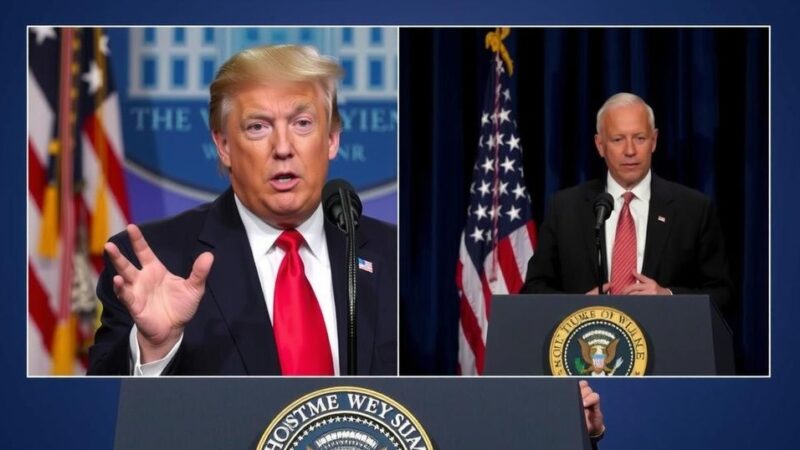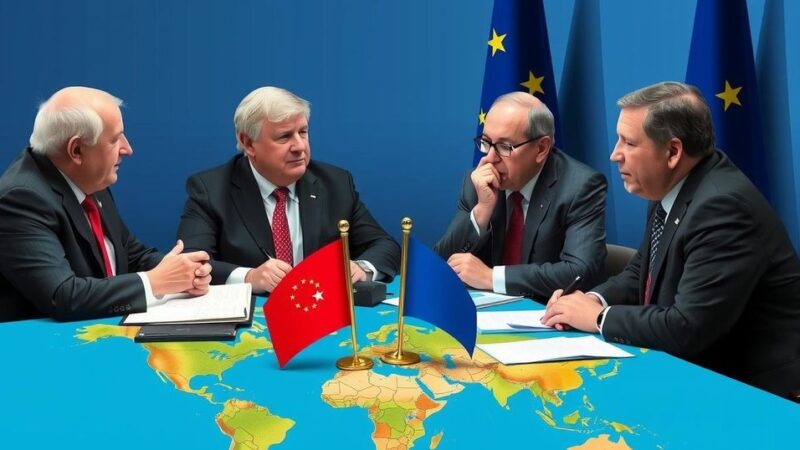A recent poll shows that over 80% of Americans are concerned about the growing cooperation among China, Russia, Iran, and North Korea. The survey highlights deep-seated suspicions towards these nations, reflecting a significant desire for U.S. leadership and a robust military stance to counter potential threats. The increasing alliance between these adversaries raises alarms about global stability and American interests, prompting calls for enhanced international engagement.
Recent polling conducted by the Ronald Reagan Institute indicates that a significant majority of Americans, over 80%, harbor concerns regarding the emerging partnerships among adversarial nations, specifically China, Russia, North Korea, and Iran. This apprehension reflects a growing awareness of their collaborative activities, particularly in military exercises, arms sales, and economic relations, especially following geopolitical turbulence in recent years. It is noteworthy that 86% of those surveyed expressed concern about these alliances, with nearly half categorizing their concern as extreme.
Americans’ perceptions of these nations remain significantly negative, with three-quarters describing China as an adversary and 80% viewing Russia similarly. Concerns extend beyond these two countries; 76% perceive Iran as an enemy. This trend underscores long-standing suspicions that have intensified amid increased Russian and Chinese cooperation, particularly following Russia’s invasion of Ukraine. Both Moscow and Beijing have notably criticized the U.S. and NATO for their strategic positions, seeking to develop a new security framework in response.
Furthermore, the military dynamics reflect increasing military coordination among these nations, as evidenced by joint naval drills and mutual support, notably with North Korea supplying munitions to Russia. The poll indicates that 41% of Americans believe the military should be prepared to engage in separate conflicts with both China and Russia, aligned with traditional U.S. defense strategies. Importantly, there is a rising sentiment for U.S. leadership in global affairs, with a substantial 57% advocating for American prominence on the world stage to counter these adversarial coalitions.
The growing cooperation among China, Russia, Iran, and North Korea poses a significant challenge to American foreign policy and national security. Historical tensions with these nations have intensified due to their strategic alignments in military and economic affairs. The Ronald Reagan Institute conducted a poll to gauge American perceptions of these threats, revealing a public increasingly alert to the potential consequences of such international partnerships, particularly in the context of recent global events that have destabilized traditional power structures.
The results from the Ronald Reagan Institute’s poll illustrate a considerable level of American concern regarding the alliances formed between adversaries like China, Russia, North Korea, and Iran. This worry is compounded by a perceived need for the United States to maintain a robust military stance and enhance its involvement in global leadership to mitigate risks associated with these countries’ collaborative efforts. American public sentiment favors a proactive approach in addressing these emerging geopolitical threats.
Original Source: www.newsweek.com







